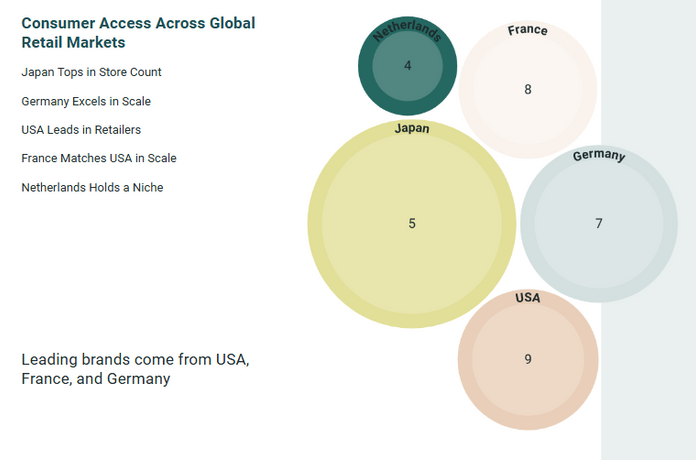Assessing What Shoppers Prefer
The Growth of Omnichannel Shopping
The rate of customer purchase is 250% higher on Omnichannel, while the average order value remains 13% higher compared to single channels. (https://wisernotify.com/blog/omnichannel-stats/).
You might ask, what is meant by omnichannel? The easiest way to describe it is a business strategy that ensures a seamless customer experience between all contact channels. For retail that means a business model that integrates both traditional retail spaces and an online presence.
As per a study carried out among 46,000 retail shoppers, 7 out of 10 retail shoppers use multiple channels in their shopping journey; only 7% shop completely online while 20% shop only in physical stores. (https://www.uniformmarket.com/statistics/omnichannel-shopping-statistics)
Today’s consumers are more demanding, digitally savvy, and discerning than ever before. According to a survey by The Keen Folks, 87% of shoppers begin their product searches online. 75% expect a consistent experience across every channel they engage with, whether it’s in-store, on the website, or via social media.
82% expect immediate responses to sales or marketing questions, with a significant preference for quick and efficient communication. 67% prefer self-service options over speaking with company representatives, which highlights the growing need for automation and self-service tool
(https://www.thekeenfolks.com/blog-article/10-mind-blowing-stats-about-consumer-behaviour)
These statistics emphasize the importance of delivering a seamless and consistent experience across all touchpoints. Consumers are not just looking for an online shopping experience; they expect a holistic and integrated approach to interacting with brands across physical and digital channels.
Retailers must embrace omnichannel strategies that integrate online and offline experiences, ensuring they meet customer expectations at every stage of the buyer’s journey.
For executives, understanding the evolving consumer mindset is key to making informed, strategic decisions that drive business growth. Today’s consumers expect not just products but experiences, and their loyalty is often tied to how well a brand can meet their needs across multiple platforms.
Trust: A Key to Consumer Loyalty
In today’s highly competitive market, building consumer trust has become more critical than ever before. While the global consumer market is expanding—the consumer class reached 4 billion in 2022 and is projected to hit 5 billion by 2031—trust remains one of the most significant challenges for businesses to overcome. There is a growing gap between the trust executives believe consumers have in their companies and the trust consumers feel.
To bridge this gap, businesses must focus on transparency, authenticity, and delivering value-driven experiences.
Consumers are no longer swayed by flashy advertising and are not surprised at promises not kept. Consumers demand accountability and honesty from the brands they support. Consider that 34% of consumers are more inclined to shop on social media if they understand how their data is secured.
Building trust also means providing clear and honest communication about product quality, pricing, and company practices. Brands that deliver on their promises and demonstrate ethical business practices are more likely to cultivate long-term customer loyalty. Transparency and trust can become a powerful differentiator in a market crowded with options.
Source:
What's the role of reviews and creator relationships?
User-generated content (UGC) and influencer marketing are becoming indispensable tools for businesses looking to engage consumers and drive sales. According to Bazaar voice, 47% of shoppers rely on user reviews when making purchasing decisions, and 23% of them watch product demo videos before making a purchase.
The importance of social proof in the buying decision process cannot be overstated. Positive reviews, ratings, and testimonials from real customers or influencers can significantly influence potential buyers’ perceptions of a product or brand. Gen Z and young millennials are particularly discerning regarding authenticity. They value transparency in influencer partnerships and often seek creators who strongly engage with their followers. For example, 28% of Gen Z shoppers and 26% of young millennials value sponsorship disclosures, while 29% prioritize follower engagement when evaluating creators
(https://media.bazaarvoice.com/SEI-VOL-18.pdf)
Given the growing importance of influencer marketing, retailers need to build meaningful relationships with creators who resonate with their target audience. These creators can help amplify a brand’s message, increase visibility, and drive consumer trust by providing authentic endorsements that go beyond traditional advertising.
%20R.png)




